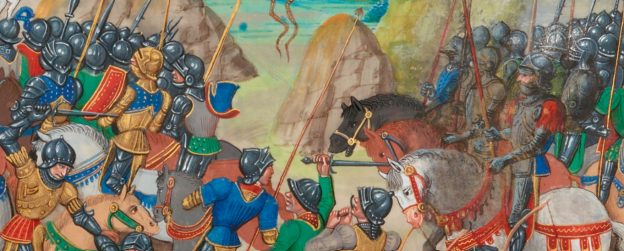Sometimes events happen which universally shock and horrify a group into action. The Japanese attack on Pearl Harbour shocked and galvanised the United States of America into entering the Second World War. The Christchurch terrorist attacks shocked New Zealanders into supporting those affected by the deranged attacker.
Judges 20 shows the response of Israel to the appalling events of the previous chapter in Gibeah. The nation largely united to judge and expunge the evil in their midst, following God’s lead. The events of this chapter remind us of the importance of pursuing holiness in our own lives, and the importance of Church Discipline in ensuring the peace and purity of God’s People today.
After the twelve pieces of the concubine’s body made their way around Israel, all of Israel gathered together before God at Mizpah united in disgust (v.1). They were gathered for battle, ready to remove the evil among them (v.2).
Israel demanded a report of what had happened from the Levite (v.3), which was duly offered with some rosy depictions ignoring his own behaviour and suggesting threat on his life (vv.3-7).
Nevertheless, what he described was sickening enough that “all the people arose as one man” to punish Gibeah for its awful “outrage” of a crime (vv.8-11).
All, that is, except the tribe of Benjamin, of whom Gibeah’s depraved residents were a part. They were not willing to “give up the men” of Gibeah, even if they were evil (vv.12-13). They might be evil people, but they were their evil people.
So Israel mustered to fight against Gibeah and Benjamin, and Benjamin mustered to fight against the rest of Israel (vv.14-17). 400,000 men on one side, 26,700 (including 700 crafty left-handers) on the other.
What follows in the text is the narrative of the battle. Israel, mirroring its reliance on God in chapter 1 of Judges, sought God’s guidance at Bethel on who was to lead them in battle (v.18). God’s reply was the same as in chapter 1; Judah was to lead.
Yet the battle against the Pagans in their Covenant-midst did not go smoothly. Benjamin killed 22,000 of Israel’s number, stopping Israel from bringing judgement on Gibeah (vv.19-22).
The people of Israel responded by weeping and turning to God, asking if they were still to bring judgement against their brothers, Benjamin. God told them to carry on (v.23).
Again, defeat at Benjamin’s hand (vv.24-26). Once again, they turned to God at Bethel for guidance and leading, with offerings (v.26). They sought God’s guidance, through Aaron’s son Phineas, as to whether to carry on (vv.27-8). God told them to carry on, because he would give Gibeah and their Benjaminite enablers into their hands.
What follows is the account of their victory, from both a general overview and a detailed look. In short, Israel faked a retreat to draw Benjamin away from Gibeah (vv.29-32). While Israel “fled” from Benjamin, 10,000 hidden men arose and put Gibeah to the sword, killing the worthless Gibeahites who had committed their crimes (vv.33-4, 37-8).
At that point, Israel suddenly stopped fleeing and started fighting, with Benjamin caught between two forces and with Gibeah burning behind them, a slaughter ensued. 25,100 men died in three separate engagements (v.35, vv.39-46).
Only 600 men remained of Benjamin’s tribe, holed up in a defensible position at the Rock of Rimmon for four months (v.47). The rest of Benjamin, along with everything belonging to it, was destroyed as if it was a Canaanite nation (v.48). Thus God defeated the evil in Israel’s midst that day (v.35), but at a terrible price.
This passage reminds us of the importance of pursuing holiness in our lives. We cannot live like the nations around us or we too will receive the same judgement which God will one day fall on the nations for their wickedness and rebellion against God. As temples of the Living God, we should not pursue lives that look something like the sons of Belial’s (v.13) because Christ has no company with Belial (2 Cor. 6).
This passage also has a corporate application. Just as there was wickedness in God’s People in that day, so too there is today in our own midst. We should not be surprised, after all even Paul had to exercise discipline eg, 1 Cor. 5).
What is the answer to wickedness in our midst? Not assembling a physical army to fight and slaughter, but to fight for the purity and peace of God’s Church through prayer and her Courts. Those who lead us today, our Elders, are tasked with lovingly, tearfully, but firmly when required exercising discipline to purge wickedness from the Church.
It may take time. There may be setbacks. If the local elders will not act, then the regional (Presbytery) or even national body must act. But led by the Holy Spirit, just as Israel were, our Elders help lead us in glorifying God and casting out the wicked, if needed, from among us.

